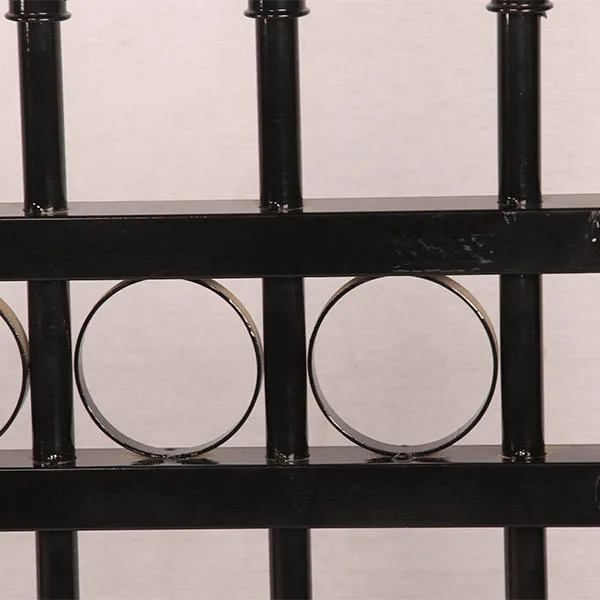Jul . 26, 2024 13:15 Back to list
6mm Cold Drawn Wire Specifications and Applications in Various Industries and Manufacturing Processes
Understanding 6mm Cold Drawn Wire Properties, Applications, and Benefits
Cold drawn wire, particularly in the 6mm diameter range, has become an essential material in various industrial applications due to its unique properties and versatility. This article explores what cold drawn wire is, its manufacturing process, advantages, and common applications in different sectors.
What is Cold Drawn Wire?
Cold drawn wire is produced by drawing a metal rod through a series of dies at room temperature to reduce its diameter and improve its mechanical properties. The process involves elongating and reducing the width of the wire simultaneously, resulting in a finer and stronger product. The term cold drawn indicates that the wire is shaped at ambient temperatures, which contrasts with traditional methods that involve heating the metal.
Manufacturing Process
The manufacturing of 6mm cold drawn wire starts with a larger diameter wire rod, typically made of materials such as carbon steel, stainless steel, or alloy steel. The initial wire is heated and then fed into a drawing machine. As the wire passes through a series of progressively smaller dies, its diameter is reduced to 6mm while its length increases. This process enhances the density and strength of the wire due to work hardening. After drawing, the wire may undergo additional processes such as annealing or coating to improve its properties and protect it from corrosion.
Key Properties
The properties of 6mm cold drawn wire are influenced by the materials used and the production process. Some of the key characteristics include
1. High Tensile Strength Cold drawing increases the tensile strength of the wire, making it suitable for applications requiring durability. 2. Improved Surface Finish The drawing process results in a smooth surface finish, reducing the risk of rust and other forms of wear. 3. Precision Tolerance The manufacturing process allows for tight tolerances in diameter, ensuring consistency in applications where precision is vital. 4. Enhanced Ductility While the wire becomes stronger, it also retains enough ductility to allow for easy bending and shaping during installation.
6mm cold drawn wire

Applications
The versatility of 6mm cold drawn wire leads to its use in various fields, including
1. Construction In construction, 6mm cold drawn wire is often used in concrete reinforcement, helping to improve the structural integrity of buildings and infrastructure. 2. Automotive Industry Cold drawn wire finds applications in the automotive sector for components like springs, bolts, and other fasteners that require strength and reliability. 3. Electrical Engineering The wire can also be employed in electrical applications, such as making electrical connectors, due to its conductivity and strength. 4. Manufacturing Various manufacturing processes utilize cold drawn wire in producing machinery parts, appliance components, and tools that demand durability and precision.
Benefits
The benefits of using 6mm cold drawn wire are numerous
- Cost-Effectiveness The enhanced properties of cold drawn wire mean that fewer materials may be required for certain applications, reducing costs over time. - Strength and Reliability The increased tensile strength ensures that components made from cold drawn wire can withstand higher loads and stresses. - Reduced Maintenance With improved corrosion resistance and durability, products made from 6mm cold drawn wire require less maintenance over their lifespan.
Conclusion
In conclusion, 6mm cold drawn wire is a robust and versatile material ideal for use in a wide range of industries. Its superior mechanical properties, along with cost-effectiveness and reliability, make it a fundamental component in the production of various products. As industries continue to evolve, the demand for high-quality cold drawn wire is likely to grow, further enhancing its significance in modern manufacturing and engineering applications.
-
High Quality Deformed Steel Bars China - Reliable Manufacturers & Suppliers for Construction Projects
NewsJul.08,2025
-
High Quality Black Annealed Wire - Durable Iron Wire 2mm from Leading Manufacturer & Supplier Factory
NewsJul.08,2025
-
Produce Hot Dipped Galvanized Steel Grating - High Quality Grating Supplier & Manufacturer
NewsJul.08,2025
-
Galvanized Iron Welded Wire Mesh Panels – Durable, Rust-Resistant, Best Price Manufacturer
NewsJul.07,2025
-
High Quality Concrete Reinforcing Welded Wire Mesh - Durable 8mm Steel Bar, Q188, A393, F72, High Strength Mesh Solutions
NewsJul.07,2025
-
High-Quality Redrawn G.I. Wire Leading Manufacturers & Suppliers
NewsJul.07,2025

